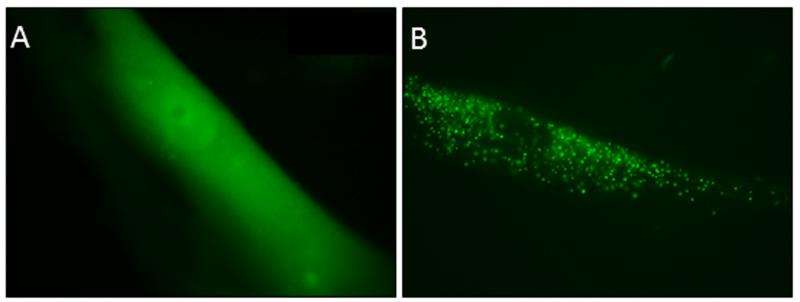Genetic cause of unknown disease uncovered

Researchers at the University of Oslo and Oslo University Hospital have found the genetic cause of a previously undescribed disease. With this, they have solved an over ten year old medical conundrum.
Using modern high-tech methods, followed by thorough clinical, biochemical and molecular biological investigations, the researchers found the causative mutation and characterized the disease which is given the name RCDP5
The researchers believe that studies of the effect of the newly discovered genetic error will provide new insight into other diseases.
Unknown disease mapped
In 2004, professor Petter Strømme examined a child with congenital cataract, growth delay and symptoms from the brain, the peripheral nervous system, and muscles as well as calcifications in cartilage tissue.
The patient had two siblings with similar symptoms, one of whom has since died. Strømme assumed that the disease was caused by a defective gene inherited from the parents, whom he suspected were both carriers of the unknown disease causing mutation.
After clinical and diagnostic odyssey in the following years, and in depth discussions with colleagues internationally, the cause remained unknown.
Novel expertise
The breakthrough came after years of meticulous work developing expert knowledge in the field of genetics at UiO and OUS.
By the use of technology available at the Norwegian Sequencing Centre (NSC) at UiO/OUS, professor Eirik Frengen's group scanned every gene from two of the patients and their mother. The defect gene was identified through extensive computer analysis, and Ph.D. candidate Tuva Barøy subsequently worked with collaborators in the Netherlands to find out how the gene defect affects cell function.
The gene defect causes the absence of a protein variant involved in the transport of essential enzymes into structures in the cell called peroxisomes. The failed transport of these enzymes affects the levels of two specific fat variants in the cell, plasmalogenes and phytanic acid. The levels of these variants are of great importance for cells in the nervous system. Measurements of cells from the patients showed that their levels diverged distinctly, explaining the patients' clinical picture.
The findings, which resulted from collaborations with Dutch and English researchers, were recently published in Human Molecular Genetics.
More information: "A novel type of rhizomelic chondrodysplasia punctata, RCDP5, is caused by loss of the PEX5 long isoform." Hum Mol Genet. 2015 Jul 28. pii: ddv305. www.ncbi.nlm.nih.gov/pubmed/26220973%20

















